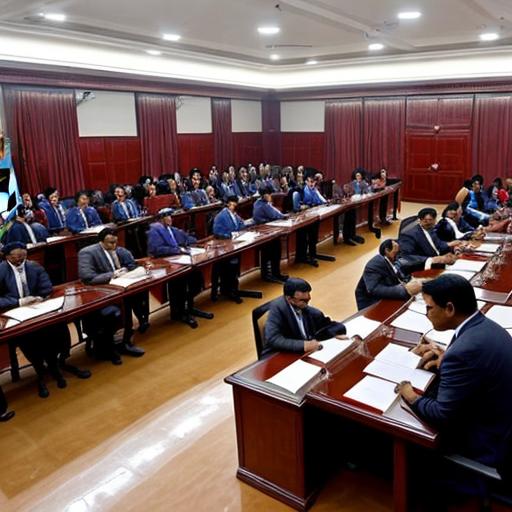Introduction:
In the complex machinery of Indian governance, the bureaucracy stands as a crucial pillar, influencing policies, implementing decisions, and shaping the trajectory of the nation. This blog endeavors to unravel the intricate role played by the bureaucracy in Indian politics, exploring its functions, impact, and the delicate balance it strikes between efficiency and democratic governance.
- Administrative Backbone:
The bureaucracy serves as the administrative backbone of the Indian government, executing policies and programs across diverse sectors. Understanding its organizational structure and functioning is pivotal to grasping its impact on the political landscape. - Policy Formulation and Implementation:
While politicians draft policies, it is the bureaucracy that translates these policies into actionable plans. Delve into the dynamics of policy formulation and implementation, and how the bureaucracy’s efficiency or inefficiency can significantly influence the success of governmental initiatives. - Political Neutrality vs. Alignment:
A cornerstone of bureaucracy is its apolitical nature. However, the reality often involves a delicate dance between political neutrality and alignment. Explore instances where bureaucracy navigates the fine line between serving the government of the day and upholding democratic principles. - Role in Decision-Making:
Beyond implementing policies, bureaucrats often play a pivotal role in decision-making processes. Examine how their expertise and institutional memory contribute to informed decision-making at various levels of government, influencing the direction of the nation. - Challenges to Bureaucratic Autonomy:
While autonomy is essential for effective governance, it is not without challenges. This section discusses the factors that can compromise bureaucratic autonomy, including political interference, corruption, and the need for checks and balances. - Public Service Delivery:
Bureaucracy is at the forefront of public service delivery, from healthcare to education and infrastructure. Explore how the efficiency and effectiveness of the bureaucracy directly impact the quality of services provided to the citizens. - Corruption and Accountability:
Corruption remains a challenge within bureaucratic systems. Analyze the measures in place to ensure accountability, transparency, and ethical conduct within the bureaucracy, and the role citizens play in demanding a corruption-free administration. - Bureaucracy and Democratic Governance:
The blog assesses the symbiotic relationship between bureaucracy and democratic governance. Discuss how the bureaucracy, as a non-elected body, contributes to the democratic process while remaining accountable to the elected representatives and, ultimately, the citizens.
Conclusion:
In conclusion, understanding the role of bureaucracy in Indian politics is essential for comprehending the intricacies of governance. As a vital link between policy formulation and implementation, the bureaucracy shapes the daily lives of citizens and influences the nation’s trajectory. Navigating the challenges of political neutrality, accountability, and efficiency, the bureaucracy remains a key player in the evolving narrative of India’s democratic governance.

